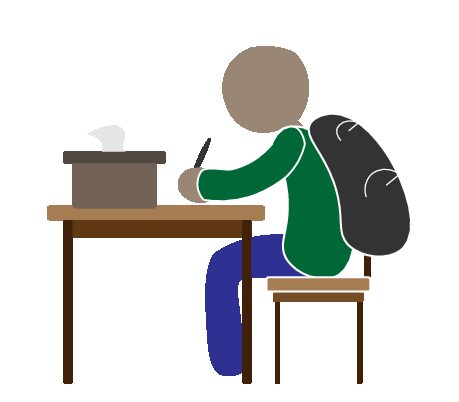Over the years, studies have shown young adults vote less than other age groups. According to CampusVoteProject.org, young adults, especially students, move more frequently, are less likely to have a driver’s license and are less likely to be contacted by political campaigns than other age groups. All of these things are barriers for registering to vote and voting.
In the election of 2018, the U.S. Census Bureau reported that only 30.1% of 18-24-year-olds voted. To put things in perspective, 65.6% of eligible 65-74-year-olds voted and 49% of the overall, eligible voter population voted.
There may be barriers that make it more difficult for some young people to vote, but it is important that they do vote.
While young people often vote less than other age groups, they make up a significant portion of the eligible voting population. This means they have the potential to have a lot of influence in politics if more young adults choose to vote.
The boomer electorate is also decreasing in size, and experts suggest that millennials will soon be the most influential group in U.S. elections.
Studies have shown that people who are repeat voters are less likely to skip voting in the future. This is why it is crucial to start voting young and form a life-long habit of voting.
Many young people who don’t vote say they feel as if their vote doesn’t matter. Millennials, for example, reported feeling “disillusioned” by the 2016 presidential candidates, and as a result, many chose to skip voting.
However, individual votes do matter. In 2009, Minnesota Sen. Al Franken won by a mere 312 votes.
Because young people are just starting out in their professional lives and careers, they are especially vulnerable to the effects that elections might have on the economy. Student loans and a lack of jobs were financially devastating to young voters after the Great Recession.
It is important for young adults to vote for the issues that affect them because they are the ones who will have to live with the consequences the longest.
College campuses are now doing more to promote voting as a duty of citizenship, and there are now more resources than ever available to students to aid and guide them in the process of voting should they choose to do so.
Some college students may not feel like voting for what politicians they want to represent them is important, but it is likely that their minds could change a few years out of college. There are many unique challenges traditional students will face in the years after college graduation, such as finding a job, buying a house or buying insurance.
All of these things and more are affected by the outcomes of elections, and that is why all young adults should take the time to cast their votes.

























